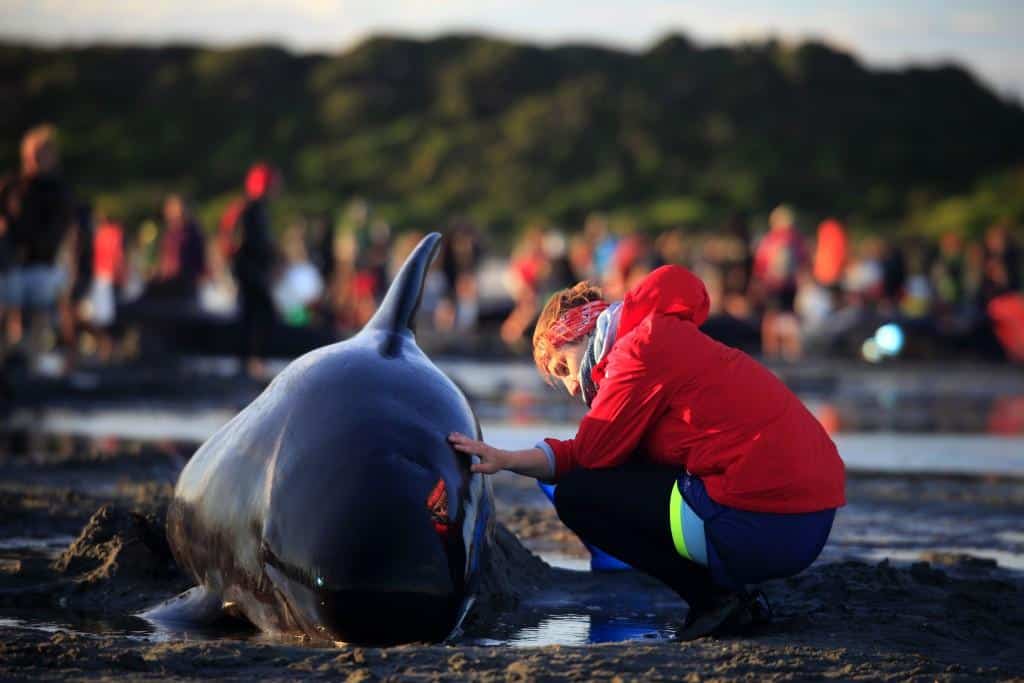When whales become stranded on a beach it’s a race against time to save lives. Here’s how New Zealanders of all ages get it done.
Project Jonah have trained thousands of New Zealanders the fundamental skills to help save stranded whales.
They run one-day training courses for all age groups to assist in the rescue of stranded whales and dolphins so volunteers can act as role models to untrained rescuers while avoiding potential hazards for people and whales at stranding events.
battleface spoke to Daren Grover, General Manager of Project Jonah on his organisation’s mission to rescue and protect whales.
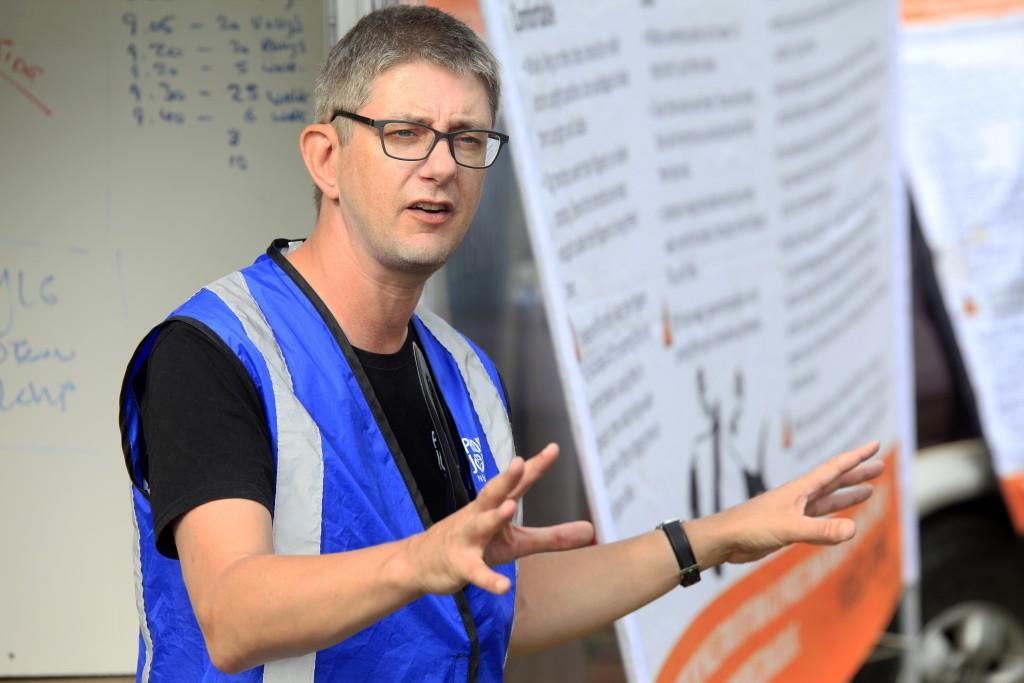
Thanks for speaking to us Daren, can you tell me why Project Jonah exists?
Well, we’re here because marine mammals need us: it’s really that simple. We were founded in 1974 as an activist organisation to protest and lobby against commercial whaling. However once international sanctions banned most whaling activities, we focused on saving whales that beach on our shores.
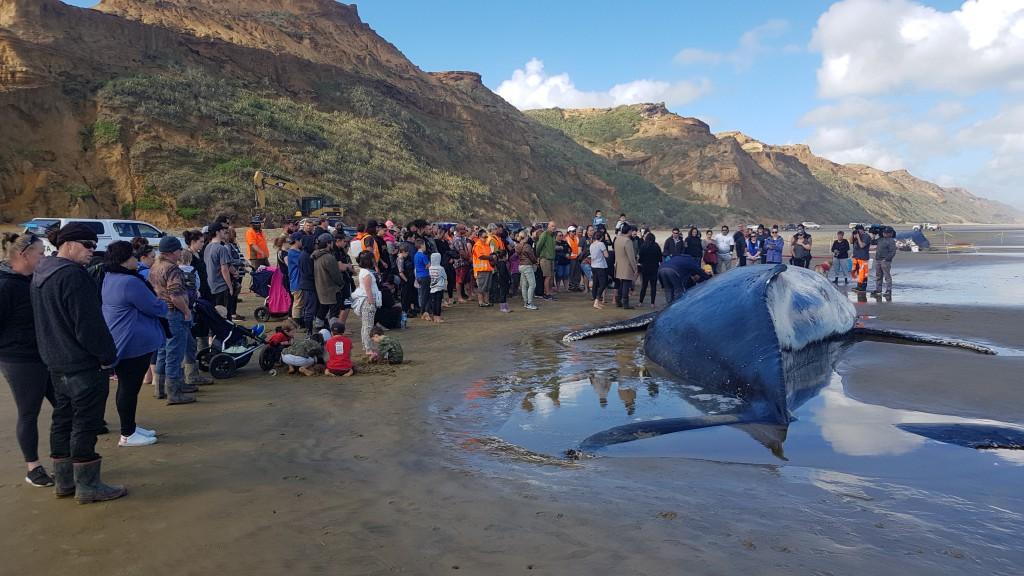
And whales are frequently stranded, yes?
Yeah. New Zealand has the highest whale stranding rate in the world – and while that isn’t something we can immediately influence, we can act collectively to save them, and dolphins too, if or when they need us.
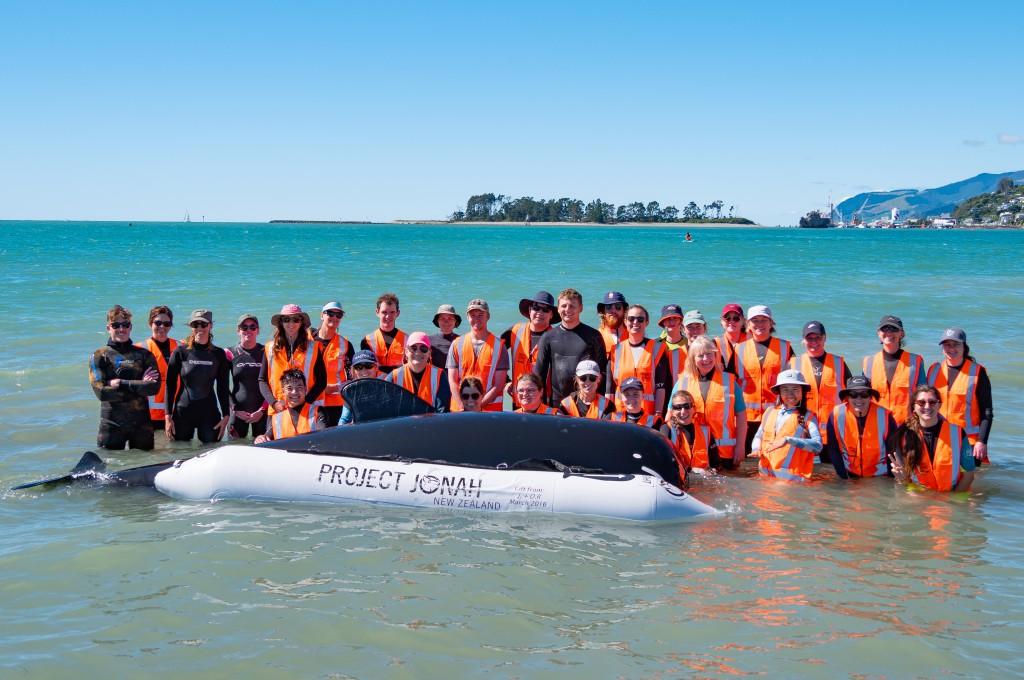
This is where I ask that question about why strandings can happen to intelligent creatures?
Well, we’re working on that with other organisations like ours and universities and research centres all over the world because there are several reasons why strandings may happen and not one theory will fit all scenarios. Sometimes it’s the tides and coastal topography that create traps for whale pods, while natural causes like injury or age can also drive them ashore. Human impacts are a significant cause too. We make their environment noisy, we pollute the seas, there are ships striking whales all the time and when one member of a family is distressed then it impacts the whole group.
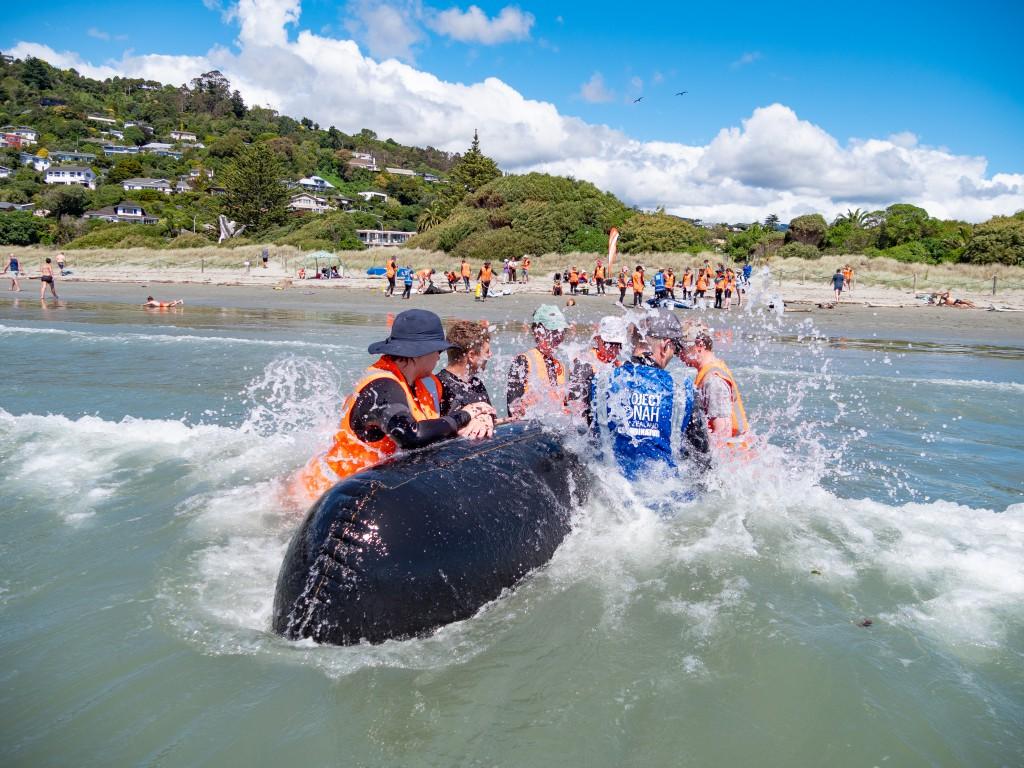
Take me through a rescue operation. How does it all start?
We’ve built an army of marine mammal medics and rescuers of all ages in communities across New Zealand and when notice of a stranding goes out – through traditional channels like national radio and TV broadcasts, our hotline, and more recently via social media – the volunteers react.
While specialist rescue managers can be on site to give direction and take some of the more serious decisions on the health of stranded whales, this is essentially a grassroots rescue operation that happens up and down New Zealand’s coasts by Kiwis who want to give their time and effort to this incredibly important mission.
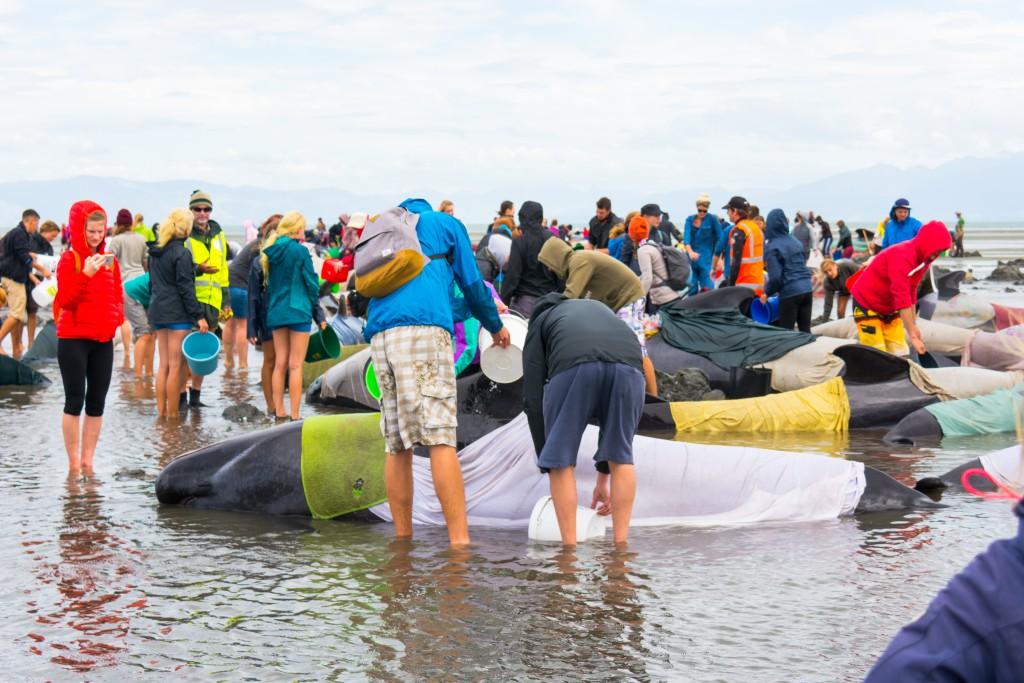
However, its not just locals who do this. At many strandings we find nationalities that we might not expect. They put their vacations on hold to join in, and though strandings can last for many hours, or sometime days, this is something you cannot walk away from once you get involved.
The whale stranding rescues are life-changing events for most people. I don’t know how I can begin to describe the emotional effect that whales have on us when we are near them.
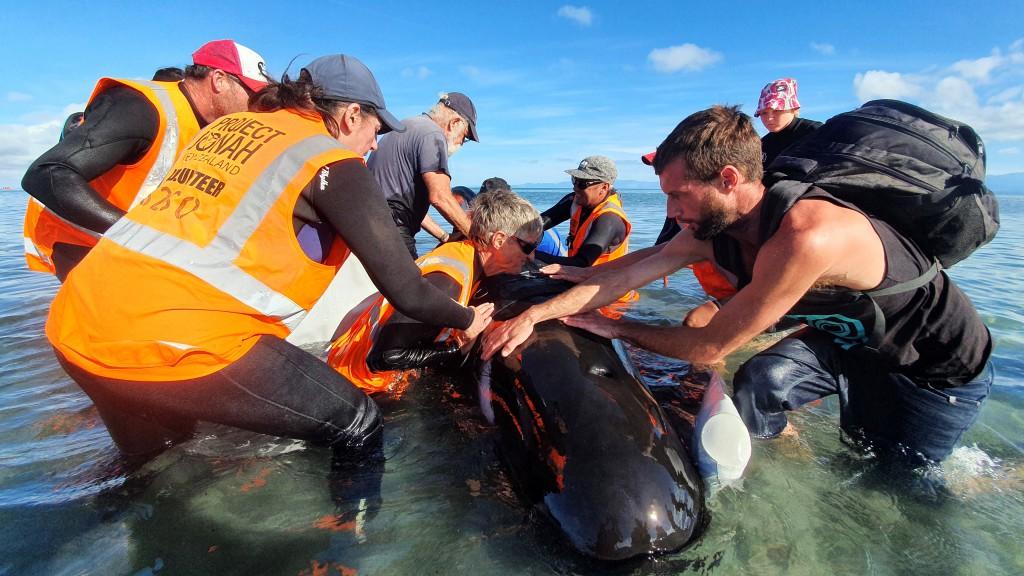
You’re going to have to try, please, because that’s my next question.
Right….well, one of the first things you experience at a stranding is the sound of distressed animals calling to each other. They’re such tightly-bonded creatures. In the sea they are always communicating and touching each other – it’s centred on a need for constant awareness that the group is OK and knowing where all family members are. When they’re stranded their stress levels increase; you can hear their panic in their calls, you can sense they’re incredibly frightened and aware of their helplessness. Their breathing patterns are frantic and tail movements signal this panic.
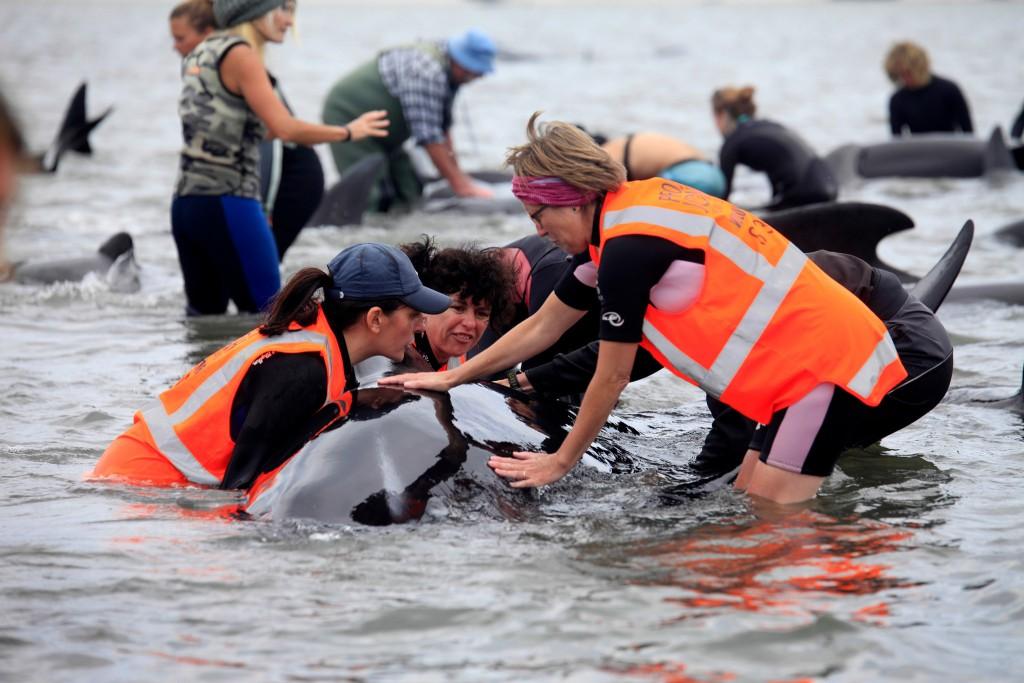
When you see them like this, when you are close, when you hear them and touch them and begin the work to protect them from the sun, or cool them with water, just one look in their eyes is enough to let you know that you are dealing with a deep soul.
Stranded whales can see and hear us. If we are calm, then it positively impacts them even though their welfare is connected to the whole pod. Their collective wellbeing is greater than any individual’s – and this is part of what makes the emotive ties to whales so strong – because their sense of family, community and empathy, mirror the same values we hold.
Making connections
Hours and hours of effort and emotion go into saving whales. We talk to them while they’re in this helpless state to soothe them. Some prefer to sing. We form bonds. We understand they are sensitive, thinking beings and the loss of just one is tragic, even if it’s a case of euthanasia to release the whale from suffering.
Yeah, its elation when we win. And the opposite outcome will always take something away from you.
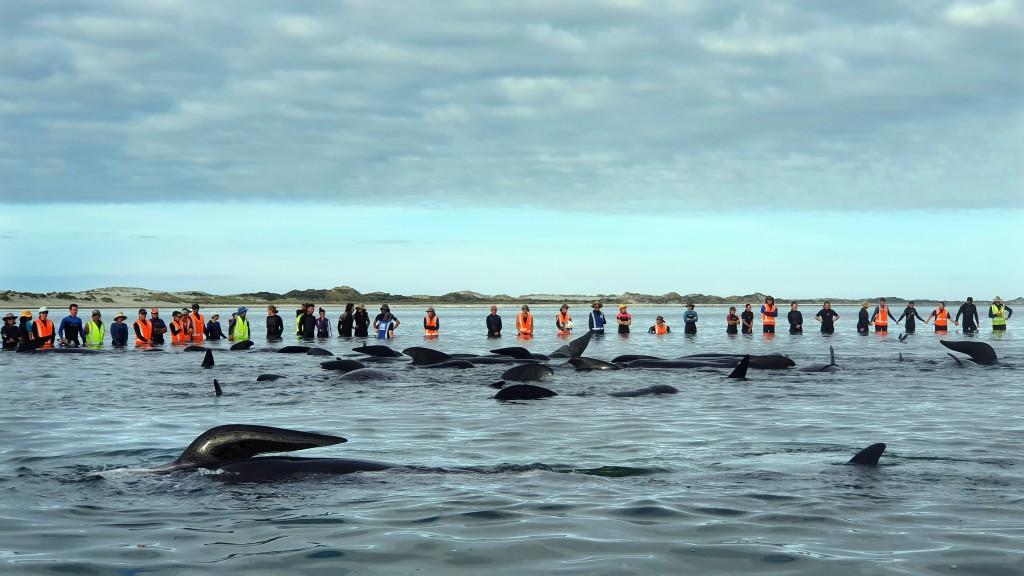
You know, when we eventually get the chance to re-float the whales; when the tides turn and they sense the water lifting them and their calls to each other change, you can sense their hope. But we can’t do this on a one-by-one basis – we float them all and then corral them together so they can reform their social bonds after the trauma of the stranding.
Rescuers link arms to make a human chain to prevent them returning to the beach to look for those that didn’t make it – and we have many recorded cases of whales swimming to their rescuers once they’re saved and we can only interpret this as sings of recognition. There is sentience. There’s a whole lot going on with the way we sense each other.
We have a very small understanding of what whales need from us – but we know enough to make a difference in most cases when they need our help. And I think that’s down to the people of New Zealand – and further beyond – that stop what they’re doing to answer a higher call and save a whale.
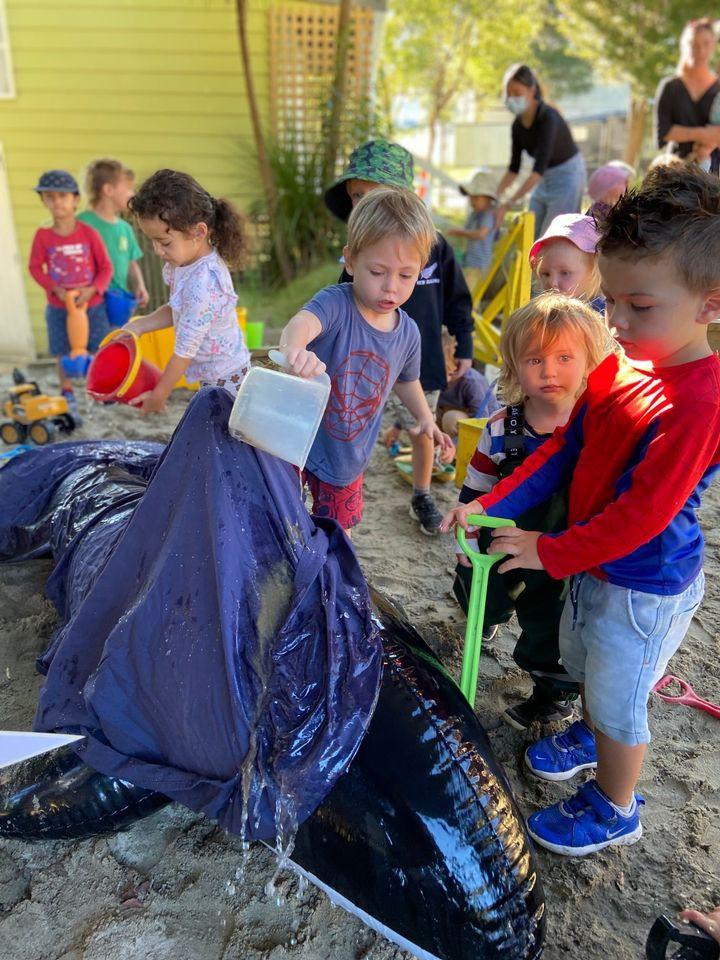
More information on Project Jonah can be found at https://www.projectjonah.org.nz/
All images ©Project Jonah
